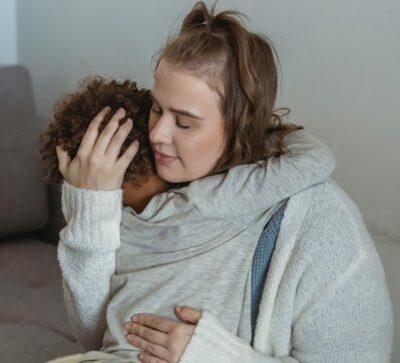Coping with Separation Anxiety: Tips for Parents

Separation anxiety commonly impacts many babies and toddlers—and it can be heart-wrenching for a parent. If your child cries or clings to you as you try to leave the room, they’re likely experiencing separation anxiety. Learn how to identify common signs and tips to help your child feel safe and sound.
What is Separation Anxiety?
Separation anxiety occurs most commonly between the ages of 8 and 18 months. You may notice your child becomes clingy or starts throwing tantrums when you leave. They may also display signs of fear, restlessness, or hesitation.
Why does separation anxiety occur? By now, your toddler can understand that you exist—even when they can’t hear you or see you. But your toddler doesn’t fully understand the concept of time. So when you leave them with their grandparents for an afternoon or walk into the other room for a few minutes, it feels like the same amount of time for them—and this can cause fear and panic.
Common situations that trigger separation anxiety can include:
- Saying goodbye: Your toddler has learned that they are safe and secure when they are near you—so when you say goodbye and separate, this can prompt feelings of worry or fear. Reassure your child that even when you leave, you’ll come back.
- Large groups of people: Being in a large crowd can trigger anxiety for your child as they may worry about losing you in a group of people.
- Going to sleep: Lastly, leaving your child alone in their room for a nap or over the course of a night can be extremely anxiety-inducing. Reassure your child that you are just a few steps away—and if they need you, you’ll be there.
Tips to Cope with Separation Anxiety
Experiencing separation anxiety is very common for your toddler—and there’s plenty you can do to ease their symptoms and help them feel more confident and safe.
Create a goodbye ritual. By creating a goodbye ritual for your child when you drop them off at preschool or at a friend’s house, you’ll help them feel safe—and it will decrease the opportunity for feelings of worry, nervousness, and fear to arise. Try saying something like, “I’ll be back after work. I love you. I can’t wait to hear about your day.” Then give your child a hug and leave. Stay consistent with your goodbye ritual. When you create a familiar transition each time, your child will become accustomed to this—and feel safe.
Stay calm—and practice calming exercises. If your child has a full-blown meltdown when you leave, it can be so difficult to see. Stay calm and reassure your child that they will be okay. If your child has a difficult time with new environments, or even around going to preschool every day, there are a number of ways to help them. [ LINK TO How to Teach Your Child about Emotions blog → ]
Keep leaving! It can be distressing to see your child in a panic—but remember that each time you leave, you’re giving your child the opportunity to build confidence and independence. One day, your child will run off with a wave and smile.
How We Can Help
Preschool Programs in Onslow County
If you’re searching for a preschool program for your child, we’re here to help! Learn more about our preschool programs here.
Parenting Resources
Looking for additional parenting resources? We’ve compiled a list of our favorite recommendations here. For additional support or resources, contact our team at (910) 938-0336 and we’d be happy to help.
